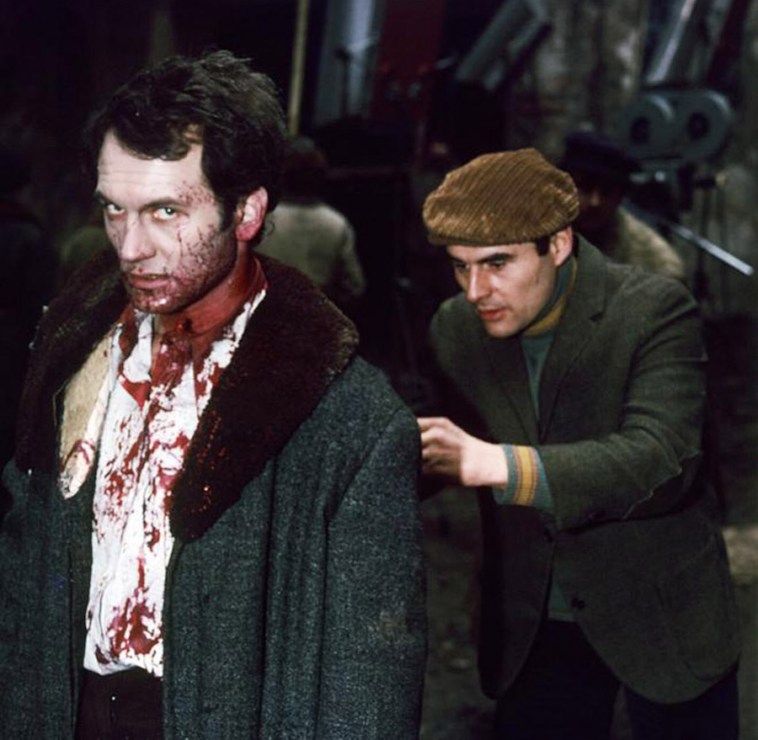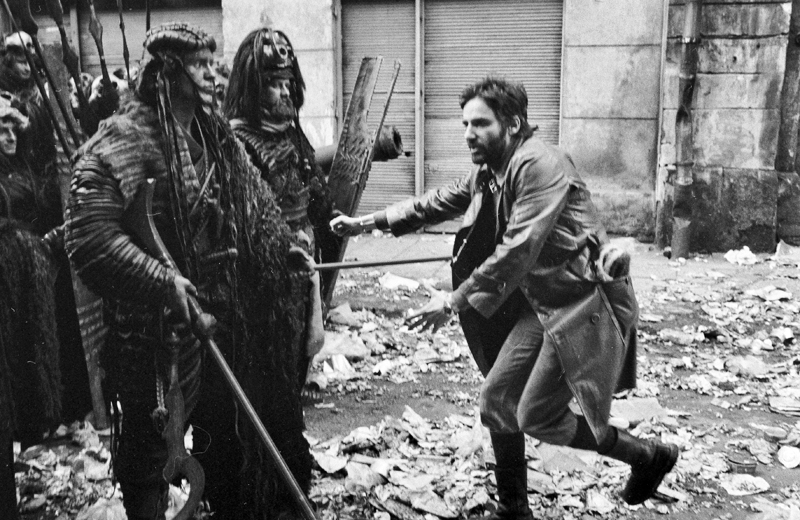Beginnings
Educated in philosophy at the Sorbonne and the IDHEC, in the 1960 after completing his studies, he was second director and assistant to Andrzej Wajda on his films Samson, Miłość Dwudziestolatków (Love at Twenty) and Popioły (The Ashes). Throughout the 1960s Żuławski published film reviews and poems. Son of the writer Mirosław Żuławski and father of the director Xawery Żuławski, his visions are also influenced by his experiences in wartime and communist Poland. His directorial debut were two short films - Pavoncello in 1967 and Pieśń triumfującej miłości (The Song of Triumphant Love) in 1969.
Debut
His first feature length film Trzecia część nocy (The Third Part of the Night)is a story about the cruelty of war. Based on the experiences of his father who ran experiments on Typhoid Fever infections, the film follows a fugitive who witnesses the murder of his family and enters a crazed world of traps, doubles, disease and death. In 1971, the film provoked considerable excitement.
 Still from Andrzej Żułąwski's Third Part of the Night, 1971, featuring Krzysztof Fus and Andrzej Kotkowsk, Courtesy of Studio Filmowe Kadr/Filmoteka Narodowa/www.fototeka.fn.org.p
Still from Andrzej Żułąwski's Third Part of the Night, 1971, featuring Krzysztof Fus and Andrzej Kotkowsk, Courtesy of Studio Filmowe Kadr/Filmoteka Narodowa/www.fototeka.fn.org.pLater films
The Devil, an extraordinary and highly controversial horror film shot in 1972, premiered only in 1988, because the director was arrested by the communist authorities before the premiere. Żuławski uses tricks which originate from Gothic horrors, blood and gangster films, magnifying and deforming them to the effect of a parody. The story is set in 1793 and a mysterious stranger – the devil – takes Jakub on a journey rich in nightmarish events.
Shot in France in 1976, L'important c'est d'aimer (The Most Important Thing: Love) is a dark film about the world of wasted talent and losers who can be saved only through love. Also in 1976 he was drawn back to Poland to shoot the first Polish Science Fiction film - On the Silver Globe. A space odyssey based on a book by Żuławski's great-uncle, Jerzy Żuławski, it shows a community of Earthians set up on a non-descript planet developing religious rituals. Its production process was stopped in 1978 and Żuławski did not resume it until 1986, when he edited and added sound to the forty-eight surviving parts of the film.
 Andrzej Żuławski on the set of On the Silver Globe based on The Lunar Trilogy by Jerzy Żuławski, 1978, photo: Tomek Sikora / Forum
Andrzej Żuławski on the set of On the Silver Globe based on The Lunar Trilogy by Jerzy Żuławski, 1978, photo: Tomek Sikora / ForumAfter losing his right to work in Poland at the end of the 1970s and his marriage to Małgorzata Braunek fell apart, he went to New York with the aim of committing suicide. Andy Warhol talked him out of it and within ten days, in 1981, Żuławski wrote the screenplay for Possession – the film for which he is best known, especially in the US. A portrait of a marriage in painful dissolution, 'Possession is a cry, a long howl from the depths of the soul, which gets relieved - when least expected - as a result of peace and quiet' says cinema expert Max Tessier. As Wall Street Journal's Kristin M. Jones puts it, 'Like movies by David Lynch or Roman Polański, Mr. Żuławski's work addresses love, madness and troubled relationships, but his approach to storytelling and his cosmology of personal, political and biblical allusions are all his own.' His fondness for the use of recurring themes, details and doppelgangers across multiple films as well as sudden intrusions of humor in the most horrific scenes becomes very apparent in Possession.